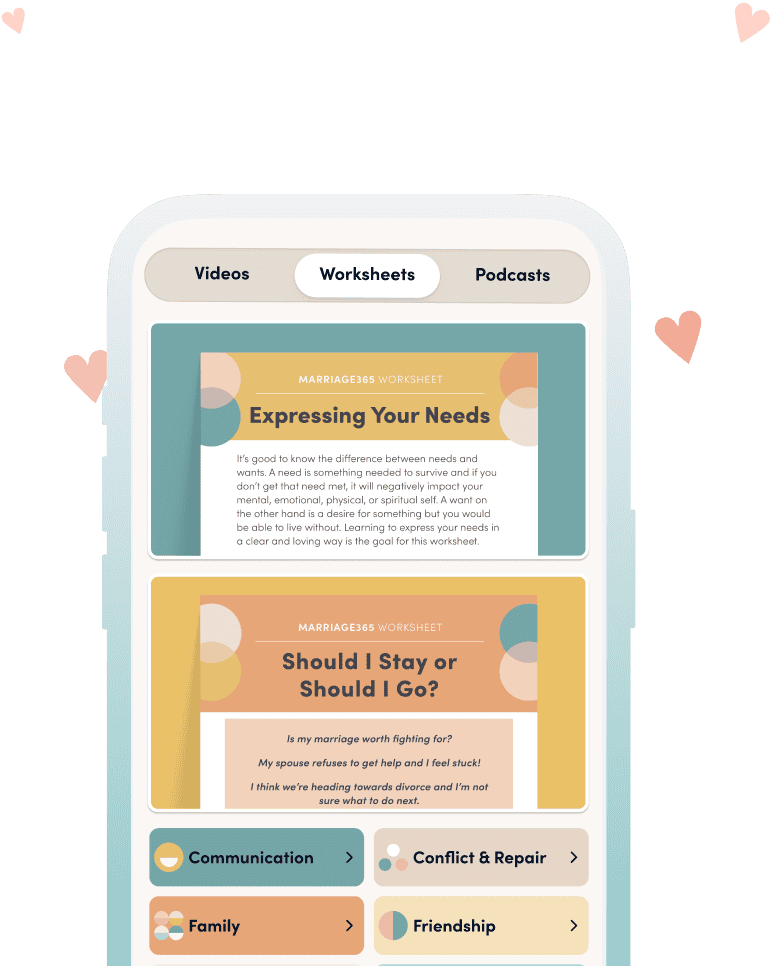Most of us know that racism can be a challenging topic for people to talk about; even with your spouse.
But the question that begs a deeper understanding here is why? Why is it uncomfortable or scary to sit down and talk about race with your best friend? There are many reasons, but let’s boldly look at a few, together.
Your spouse may not want to talk about racism with you because:
→ they don’t want to sound disingenuous or insensitive, so they say nothing.
→ the history of many diverse communities is tied to a period of horrible acts such as slavery, torture and sexual abuse.
→they are afraid it will turn into a “who suffered more” conversation and they fear their viewpoints will immediately become invalid or misunderstood.
→ racism may be a firsthand experience for your spouse and it may be difficult for them to re-live or put into words.
→ they may have not done enough research on the topic of racism or do not have much, if any, first hand experience so they feel their voice is irrelevant to the conversation. And if this is the case, it can be very overwhelming to know where to start.
→ racism is a topic that many people believe has the potential to change another persons view of them and they are afraid to say the wrong thing.
→ some people may truly not believe that racism exists and believe that talking about it will give the movement more fire than peace.
→ they may be struggling with racism themselves and be afraid to express that.
→ your spouse was raised in a home where racism was never a healthy discussion but instead a heated, angry and opinionated topic so they avoid talking about it all together.
All of those reasons are possible explanations as to why some struggle with having this conversation. And no, I’m not saying that having a racist point of view is acceptable, but what I am saying is that if there is ever going to be any healthy traction or growth in this kind of conversation, it has to be had without judgment, criticism, shaming, slander, or hatred.
Stop Scrolling!
It's time for healing
Marriage365 Membership is the #1 online resource trusted by over 100K couples to find, hope, healing, and connection. Let go of the pain for good.
The truth is that racism is a conversation that needs to be had between you and your spouse. Not because it’s a current world conversation, but because each of you have a viewpoint on this topic and that means it’s on the table for discussion in the marriage arena. Like all other topics are and should be. Marriage is about sharing life together, growing through your differences and similarities. Having this very important conversation is an opportunity for you to love, learn, challenge each other, grow, and discuss how you can be united together. The point is to connect, grow, and understand… always.
A few years ago, we had a very eye-opening conversation about this topic that came from one of our closest friends experiencing racism in his life. Casey and I were both raised in neighborhoods with all different races and our parents taught us to respect all people no matter the color of their skin. So when our friend started to share his stories and feelings of how he’s handled racism, it made us think about things that we had never even considered and we ended up having a much needed conversation. It brought us together and shed light on new areas that both of us needed to discuss.
HERE ARE SOME TIPS FOR YOU AND YOUR SPOUSE TO KEEP IN MIND WHEN TALKING ABOUT RACISM:
Keep an open mind.
You formed your point of view through an entire lifetime of experiences, conversations, and education (be it self-led-research or institutionalized learning). Most likely, your spouse did not have the same experiences, conversations, or education as you did. This means there’s room to respectfully learn about how you each came to your unique understanding and perspective on this topic.
Assume your spouse has good intentions.
Your spouse will never share the real, deep, authentic truths of their heart with you if you jump to conclusions about what they mean or are trying to say. Making assumptions about our spouse’s intentions causes us to become defensive and judgmental instead of understanding and gracious. If you feel triggered by something your spouse says, ask clarifying questions!
Agree to be respectful.
This is a difficult topic to discuss and it might be difficult for your spouse to find the words to convey their scope of understanding and processing. Be gracious. Consider saying “I’ve never thought of that before – could you explain why you think that?” rather than “I don’t believe it; that’s never happened to me.” Or “help me understand how you came to believe that” instead of “that doesn’t make any sense; you’re wrong; do you even have sources to back that up?”.
Bonus tip: If you can’t talk about your bills, parenting styles, or sex life without fighting, then it’s probably time to focus on building a stronger emotional connection before you talk about racism. We want you to succeed with this topic of racism and that means you have to be able to be in a good place emotionally.
Below are Connecting Questions that you and your spouse can talk through in regards to race that will hopefully start meaningful conversations.
- Growing up, did your parents ever talk to you about racism? Was it helpful or more of a hindrance and why?
- What are your family’s views on racism? Do you agree with their beliefs? Why or why not?
- How often do you think about your racial or ethnic identity and why?
- Have you ever felt judged, ignored, or mistreated because of your race?
- What aspect of your racial or ethnic identity makes you the proudest?
- Growing up, did you have friends of different races? Why or why not?
- Have you ever experienced a situation where your racial or ethnic identity seemed to contribute to a problem or uncomfortable situation?
- Why do you think the topic of racism is such a heated topic with so many people?
- Does racial or ethnic identity enter in your process of making important or daily decisions? If so, how?
- Have you ever felt different in a group setting because of your race? How did this affect you?
- How can we be a couple that includes all people of all races?
- What measures do you think our government and society could do to help end racism?
- Do we have any friends that get emotionally charged when talking about race that we should be aware of? Is there anything you think we can do to help create a safe environment for them to share their opinion?
- Is there anything you want to be more intentional about when it comes to educating ourselves on racism?
Final thoughts: We understand that we are not experts on the topic of racism. In fact, like you, we are learning and educating ourselves by committing to having more honest conversations together and with our children. This blog is by no means a cure to fix racism but at Marriage365, we will always help couples, as best we can, to talk about all topics, even heated, uncomfortable and new ones. And we believe that if you and your spouse have healthy conversations in your home, and begin to teach your children how to be inclusive to all people of all colors, we will see a positive impact in our world.
Written by Meygan Caston and Anna Collins







